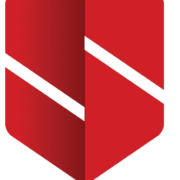ATTORNEY SPOTLIGHT: Nyana A. Miller
/0 Comentarios/en News Release /por Jacques Hart
Nyana Abreu Miller, recently appointed Counsel at Sequor Law, shares insights on the benefits of being a trilingual woman in the international law industry and her efforts to empower women in law.
In 2021, you were promoted to Counsel. How did the promotion change your role as an attorney?
The promotion grew my responsibilities both within and outside of Sequor, changing the way I am perceived and providing me with new opportunities for professional growth, such as increased public speaking engagements. Within the firm, my position as Counsel entails significant managerial duties, such as supervising the Junior Associates.
How has your role as New Network and Regional Development Co-Director of IWIRC benefitted you as a Sequor Law Counsel?
The role provides a great opportunity to network and get to know other women in the insolvency space. Our committee works to launch International Women’s Insolvency & Restructuring Confederation (IWIRC) networks in places that do not have a professional development group for women in insolvency. This has provided a platform for me to learn about the insolvency industry in different countries and to bring something new to the table. Working together with other motivated professionals on a project that we are passionate about helps to grow deeper professional relationships. When business opportunities arise within those relationships, we are not mere acquaintances who met at a conference, we are colleagues who have been collaborating on a passion project for years.
How does IWIRC help to empower women in law?
For me, personally, it has been transformational to connect with other women who are succeeding and striving to grow in the same industry. At each IWIRC event, I am inspired by the many different role models that I encounter, and I find them to be very approachable and candid about what it has taken for them to succeed. These experiences have been essential in my ability to shape my own path.
You’re regularly invited to speak on topics related to international asset recovery. How have the opportunities impacted your role as a trilingual attorney?
I was born in Brazil and raised in the U.S., with English being my second language after Portuguese. I learned to speak Spanish in the U.S. as a third language.
Since I work in Latin America a great deal, my language skills have opened many doors for me. Early in my career, I was invited to speak at events where there was no budget for translators or translations, so my multilingual capabilities gained me invaluable exposure. For example, I was a guest lecturer at the Federal Judicial College in Mexico City. It was an excellent opportunity to discuss the use of insolvency as an asset recovery tool with students of the Judicial College, and it would not have been possible to do in English.
Of course, I also participate in larger conferences that do have simultaneous translation, such as the OffshoreAlert Conference, but where English is not the common language for all panelists and most of the audience, sometimes it is more convenient to conduct the panel in the local language.
Given your tenure as an asset recovery attorney, what is the most important thing you have learned?
The most important thing I learned is to follow my instincts and study the fact patterns as they relate to people in the cases. Our cases ultimately come down to people. It’s important to develop a sense of who the target is, their character, preferences and habits. An asset recovery case is only half legal strategy and the rest is about being able to anticipate and catch up to the target.
Does speaking three languages facilitate your work on cases?
Absolutely! For cases that are document-intensive, being able to read the primary document myself is a game-changer. Translation takes time, costs money and is imperfect. When an important document is discovered or a decision is entered by the foreign court, I can immediately review the document myself and engage in a meaningful discussion about it. I still lean on the local council to assist in interpreting legal documents in Portuguese and Spanish, but at least I can participate in the brainstorming that takes place as events develop and significant documents are discovered.
What advice would you give to young female attorneys?
I advise young women to look not only for a variety of mentors and role models but also for sponsors within their organization. A sponsor is someone who will help channel good work and opportunities to you, and it is a person who will support you even when you make a mistake. Everyone makes mistakes but it is how they are perceived by leadership that is critical. When people in management feel that the mistake is relatable or perhaps reminds them of something that happened to them, the employee who made the mistake will simply get another chance. And when you are a working mom or the only woman in an organization, you don’t want a simple mistake to be interpreted as a lack of commitment or some deeper problem. It’s important to have someone in the management room to vouch for you and help everyone else to put things into the proper perspective.
How does Sequor Law distinguish itself from competitors in the market?
Because of the size and strength of our team, we are very nimble. We are not a shop of generalists that tries to be all things to all people. Each of our professionals has deep knowledge of asset recovery and significant practical experience. We vigilantly monitor developments in our area of practice and we are able to draw on our depth of knowledge when we advise clients and help them craft the best recovery strategy for their case.
The focus of an asset recovery case may change very quickly, and we need to be able to deploy investigative, analytical and legal resources wherever the target may pop up. We have capabilities in-house to be able to steer the ship. However, one very important aspect of our identity as a boutique firm is that we maintain a strong network of asset recovery professionals that we can rely on throughout the globe. So if the target buys an asset in a new offshore jurisdiction, we can phone a friend who will spring to action as part of our team.
What inspired you to study law?
As a child, I read all the Nancy Drew books. Although my heroine was a girl detective, when I actually got old enough to think about a career, I realized that I enjoyed the reading a bit more than I would enjoy driving around and chasing criminals. I realized that after a case was solved it had to be tried. My grandfather was a state court judge in Kansas, so he was a great role model and ambassador for the law. When I was in high school, he took me to the courthouse for a motion calendar and I decided that law was the path for me!
Sequor Law

SOBRE NOSOTROS
ENLACES RÁPIDOS
DIRECCIÓN
MIAMI
1111 Brickell Avenue
Suite 1250
Miami, Florida 33131
WASHINGTON, D.C.
650 Massachusetts Avenue N.W
Suite 600
Washington, D.C. 20001
DATOS DE CONTACTO
Teléfono: (+1) 305-372-8282
Fax: (+1) 305-372-8202
SÍGUENOS EN:
NUESTRA HOJA INFORMATIVA
Regístrese para recibir noticias de la industria y la empresa todos los meses.




Sequor Law es una firma internacional de abogados que representa instituciones financieras, gobiernos soberanos, empresas estatales, empresas públicas y privadas, profesionales de insolvencia y clientes individuales en las áreas de recuperación de activos, fraude financiero, insolvencia y litigios de servicios financieros.